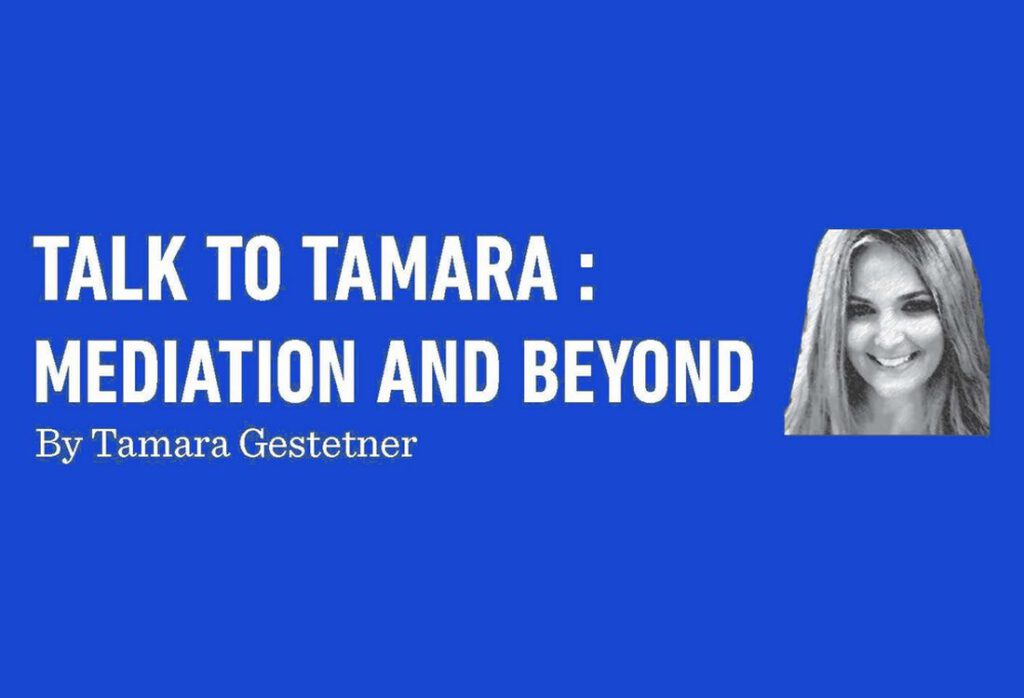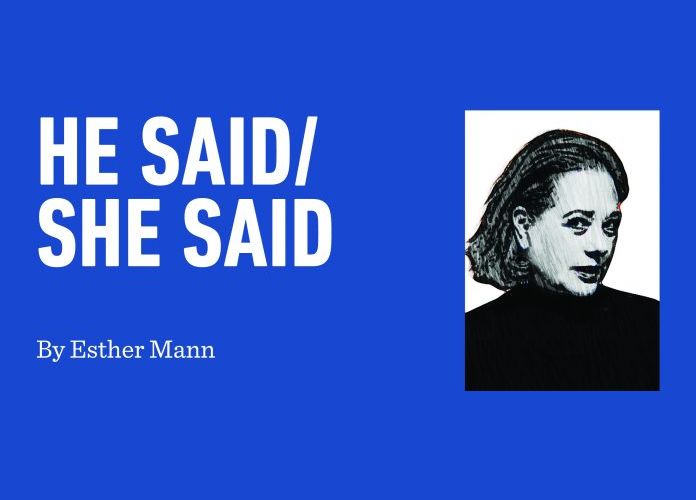The Torah Was Given in a Desert To Teach Us A Profound Truth
There’s something almost absurd about preparing for Shavuos with fresh-cut flowers and crisp white tablecloths when the holiest moment in our history happened in a place that looked nothing like a screensaver.
The Torah wasn’t handed down in a palace or a lush garden. It was given from Mount Sinai, in a desert that offered no comfort, no fanfare—just raw earth and dust swirling at everyone’s feet.
And that makes me think: maybe we don’t have to arrive somewhere spectacular to be ready. Maybe the place where everything feels most barren—when you’re parched, depleted, worn thin—is exactly where the deepest truths find us.
I remember the Spring I nearly collapsed under the weight of my own ambitions. I was juggling three jobs—teaching a night class at college, seeing mediation clients in the afternoon, coaching one-on-one in the evenings—and somehow trying to be a “present” mom on weekends. My calendar looked like a novel of obligations. My heart felt like wet cement. I’d wake before dawn to write emails, drag myself through another coaching session, feeling like a fraud, then rush off to pick up my daughter, trying to wipe away exhaustion from my voice so she wouldn’t see how depleted I really was.
On one of those mornings, I sat on my front step with my coffee turning cold in my hand and burst into tears. No sobbing, just a slow leak of overwhelm that surprised me. I looked at the sky, at the blossom petals drifting across my neighbor’s lawn, and I thought, “This is it. I’ve pushed so hard that I’ve forgotten how to stop.” That felt like a desert moment for me: wide open, startlingly vulnerable, no one to perform for, just me and the bare truth that I could not go on like this.
And yet, it was in those silent tears on my stoop that I felt something shift. Not a triumph or a breakthrough—more like a crack of light. I realized that I didn’t have to fix every gap at once. I only had to notice it was there.
We all have these desert seasons. Maybe yours comes as a loss: a marriage ending, the loss of a friend, a job closing its door. Maybe it comes in slow increments: an ache in your chest that won’t quiet, a constant knot at the base of your skull, nights where your mind races over every small failure until you’re too exhausted to sleep but too wired to rest.
I sat with a client recently who told me she’d spent months replaying one misstep at work. “I can’t get past it,” she said, voice tight. “Every time I think I should feel better it’s like I’m poisoning myself all over again.” She was in her own personal Sinai: stripped of self-compassion, hearing only the harsh echoes of her own inner critic. And when we looked together at the image of the desert—of the Torah being given in the emptiest of places—something in her softened. She stopped needing a grand sign. She just needed permission to be imperfect, right there in her own wilderness.
Because deserts don’t offer distractions, they force you to face your own reflection when there’s no breeze to carry away the truth. They leave you standing—sometimes on blistering sand, sometimes on a cracked concrete sidewalk—with nowhere else to look but inside.
I’ve been in the desert of grief, too. The year my mother died, everything around me turned to sand. I tried to fill the hole with work, with the chatter of everyday life, but the silence always crept back in the corners of my mind. I’d find myself at 3 a.m., lying in bed, thinking, “Is it selfish to want to stop hurting?” I felt guilty for each moment I didn’t cry, like I was betraying her memory, and guilty for each fresh wave of grief because it reminded me the wound had not yet healed. In that desert, there were no petals on the path, only stones and questions without answers. And yet, out of that raw emptiness came a tenderness I hadn’t known before: a deeper empathy for others, a fiercer gratitude for small mercies, a whisper in my heart that sometimes survival itself is a miracle.
The rabbis teach that Sinai was covered in thorny bushes and flint-like stones. It wasn’t a plush meadow. It was jagged and unwelcoming—by design. And I love that. Because it tells me that holiness isn’t reserved for times when we’re soaring in confidence or when our lives look picturesque. Holiness lives in the grit, in the ordinary edges of our stories, in the cracks where light gets in.
Imagine showing up to Sinai as you are: ragged, unsure, clutching everything you’ve lost and everything you can’t yet name. That’s the invitation of Shavuos, not “come as your polished self,” but “come as your raw self.”
So, this year, if you’re lighting candles feeling dull instead of divine, if your heart feels heavy instead of uplifted, know you’re not missing out—you’re exactly where you’re supposed to be. You’re standing in your own Sinai, waiting for your own Torah. It might arrive not as a bolt of clarity, but as a soft truth that reminds you that you are here. You are held. You are worthy of revelation, even when your world feels like a wilderness.
I’ll close with a moment that brought all of this into focus. A few weeks ago, my two-year-old was having a full-on meltdown. The kind of meltdown that makes time stop and your body tense. She was clinging to me, sobbing, refusing to be put down, even as I tried to stir a pot of pasta, answer a text, and hold myself together.
And I remember thinking, “How am I doing this again?”
How am I back in the toddler stage—at 42?
I was tired. My arms ached. My brain was fried. And I felt like I was being pulled in too many directions by people who needed me more than I was able to give.
Then, in the midst of the noise and the mess and the tears, I looked at her and something inside me shifted.
Because this is exactly where I’m meant to be.
Not because it’s peaceful, not because it’s easy. But because this is the life I’ve been given. And this moment—this loud, unglamorous, in-the-weeds moment—is not a mistake. It’s not an interruption.
It is the mountain, the revelation, the receiving. It was my Sinai moment.
Not in stillness or solitude—but in the heart of the chaos, holding a child who just needed me. And realizing: I didn’t miss the path. I’m standing on it.
I don’t know exactly what you’ll receive this Shavuos. But I trust that if you show up—dust on your shoes, questions on your mind, heart open even if it’s bruised—you will receive something you need. Not what you planned for, not what looks good on social media, but something sacred. Something that reminds you that the desert is itself a blessing, and that your hardest season can also be your holiest.
May you stand in your desert and hear your own truth. May you feel the gentlest of revelations. And may you know beyond doubt, that even here—in the unlikeliest of places—you are ready. n
Tamara Gestetner is a certified mediator, psychotherapist, and life and career coach based in Cedarhurst. She helps individuals and couples navigate relationships, career transitions, and life’s uncertainties with clarity and confidence. Through mediation and coaching, she guides clients in resolving conflicts, making tough decisions, and creating meaningful change. Tamara is now taking questions and would love to hear what’s on your mind—whether it’s about life, career, relationships, or anything in between. She can be reached at 646-239-5686 or via email at [email protected]. Please visit www.tamaragestetner.com to learn more.











